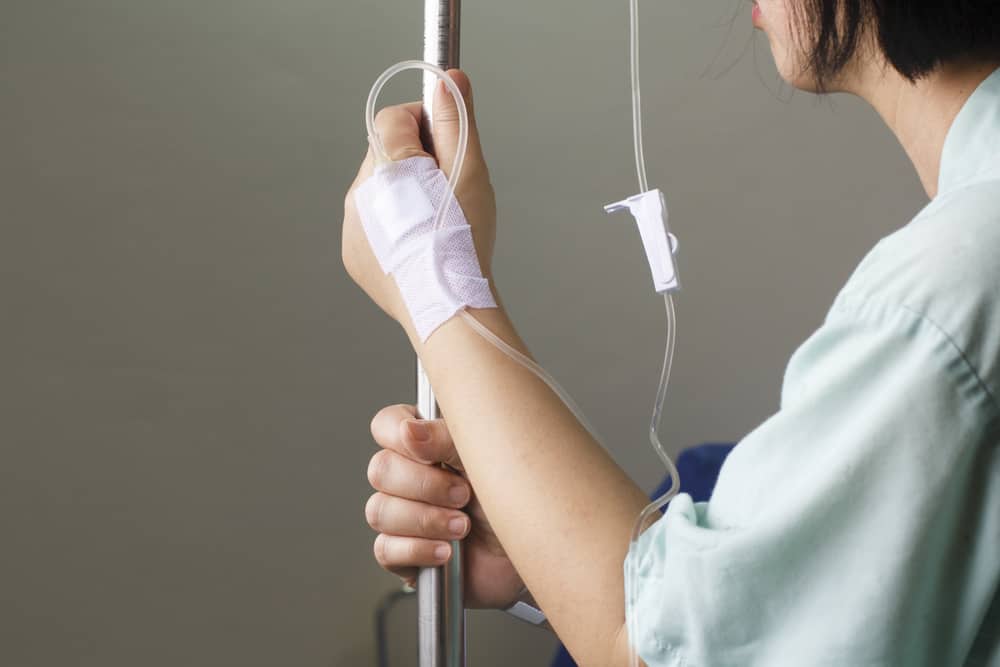Contents:
Medical Video: Managing Your Recovery After Heart Attack - Manipal Hospitals
Most people survive the first heart attack and live productively. Here are the steps you can take after a heart attack to ensure full recovery.
Early recovery in hospital
Recovery starts at the hospital. Generally, a person stays in the hospital for 3 days to a week after a heart attack. However, if there are complications or if you have undergone certain procedures such as bypass surgery, you may stay longer. You will not be allowed to leave until your condition is stable and it is safe to go home.
One of the first changes you might notice in a hospital is that the treatment routine might change. Your doctor may adjust the dose or the amount of medication you have taken. The doctor may also prescribe a new drug. This medication will treat and control symptoms (such as chest tightness) and contributing factors (types of high blood pressure or higher cholesterol) associated with a heart attack.
It is important to talk to your doctor about your medication. Make sure you:
- Know all the names of the drugs you are taking and how and how to take the medication
- Ask the doctor about possible side effects
- Ask the doctor how the drug works and why you use it
- Make a list of medicines you drink. Save just in case or if you have to talk to a health care provider about the drug.
Emotional health after a heart attack
After a heart attack, it's natural to have negative feelings such as:
- Fear
- Depression
- Denial
- Worry
These feelings often last for about 2-6 months and can affect the ability to exercise, interfere with family life and work, and have a negative impact on the recovery process.
Talking to a doctor or mental health specialist can help you deal with negative feelings. Let the family and the doctor find out. If they don't know, they can't help.
Heart rehabilitation
Many hospitals have rehabilitation programs that you can follow as outpatients. Doctors may refer to a heart health center that runs a heart rehabilitation program.
Following the program provides a number of important benefits:
- Helps speed recovery
- You will work with a heart health specialist. They will show you how to make positive changes in your life that can protect and strengthen your heart.
- You will participate in activities that improve the heart's work function and reduce heart rate.
- By following rehabilitation, you will reduce the chances of developing complications or dying of heart disease.
Most rehabilitation programs consist of 3 parts:
- Sports led by certified sports specialists
- Classes to teach you about heart disease risk factors and how to reduce those risks
- Support for dealing with stress, anxiety, and depression
Make changes to reduce the risk of heart disease
Make the changes below to help reduce the risk of heart attack and heart disease:
- Quit smoking
- Treat high blood pressure and high cholesterol
- Overcoming diabetes and obesity
- Eat foods that are healthy for the heart
- Become more active
Read some specific advice on how to make these changes.
Quit smoking
If you smoke, the most important thing you can do - not only for the heart but also for all body systems - is to stop. Although it is also one of the most difficult changes, doctors can help. Ask the doctor about:
- Plans and guidelines for quitting smoking
- Tobacco substitutes, for example nicotine gum, and prescription drugs
- Groups and support communities to help people quit smoking
- Print or online media that you can use to support your business
Just because you have tried before and failed, does not mean you cannot stop now. Most people have to stop several times before they stop forever.
It is important to insist that people do not smoke inside your home, and try to avoid smoking gatherings. Passive smoking is a risk factor for heart disease.
Treat high blood pressure and high cholesterol
High blood pressure and high cholesterol damage your arteries. Over time, this increases the risk of heart attack and stroke.
Sports, a healthy diet, and lifestyle changes can help, but maybe not entirely. The doctor may prescribe medication to treat one or both diseases.
Treating diabetes and obesity
Diabetes and obesity are the main risk factors for heart disease and heart attacks. If you have diabetes, it is important to work with a health care team to control your blood sugar. This can be achieved through exercise, diet, and in some cases, drugs. Work with a team to develop a plan for controlling diabetes.
Obesity is a major risk factor for diabetes and heart disease. Doctors can help you make a plan that will let you control the number of calories you consume while you increase physical activity to burn more calories. Your doctor may also refer to a dietitian and exercise program to help you lose weight.
Eat healthy food for the heart
According to the American Heart Association, a heart-healthy diet:
- Low saturated fat
- Contains at least 4-5 cups of fruit and vegetables every day
- There are at least 2 servings (3.5 ounces per serving) of fish a week
- Include at least three 1-ounce servings of fiber rich in fiber every day
- Low sodium (less than 1,500 mg per day)
- Contains no more than 36 ounces of sugary drinks a week.
Because you need calcium and vitamin D, make sure you get enough low or nonfat milk enriched food in your diet. Avoid processed meat.
There may be certain limitations in your diet because of the medicines you are taking. Ask your doctor if there are certain foods that you may not eat.
Changing your diet is easier if you work with a dietitian, who can help plan menus and find recipes. Dieticians will also help you find sources that will let you focus on eating healthy foods.
If you are unable to work with a dietitian as part of a rehabilitation program, ask your doctor for a referral.
Become more active
One of the most important keys to good heart health is being active. Some people are afraid to exercise after a heart attack. However, exercise is something you really have to do to strengthen your heart and reduce the risk of heart attack and heart disease the next day.
Following a heart rehabilitation program is a safe way to become more active. You will learn how to increase activity levels safely.
If you don't go to a rehabilitation center, make sure you talk to your doctor about the level of exercise that is safe for you and about how to do more activities in your daily routine. Your doctor may tell you to undergo a stress test to determine the level of activity you can start.
Also, ask your doctor for a warning sign that you should be aware of when you exercise and what to do.
Regular exercise routines (for example, 3-5 times a week for 30-35 minutes each) will help strengthen the heart and improve overall health. However, the real goal is to be more active in everyday life. The more active you are - brisk walking, playing with children or grandchildren, cycling - the more you are strong and healthy. And that's the purpose of making life-saving changes.
Heart attack is not a sign that you have to step back and do the things you like, but you have to make health — physical and mental health — a priority.












